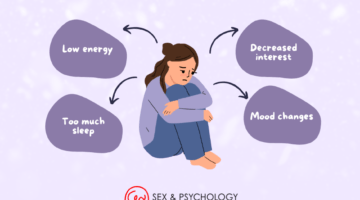“Common Sense” Isn’t A Substitute For Scientific Research
August 23, 2017 by Justin Lehmiller
I spend a lot of time talking, writing, and tweeting about the latest scientific research on sex and relationships. Over the years, I’ve had more than a few people respond to my posts and articles with comments like, “We needed research to tell us this?” In other words, it’s not uncommon for people to question whether a given study was ever needed because we could have used “common sense” to figure out the results instead.
Dismissing research in favor of common sense is one of my bigger pet peeves. In fact, it ranks right up there with people asking me whether I can read their minds when they find out that I have a degree in psychology. Once and for all, no, I’m not a psychic—that’s something completely different. But I digress.
What I want to do in this post is to take a moment and explain why it’s problematic to quickly dismiss research with “Oh, that’s just common sense.”
The problem with so-called “common sense” beliefs about sex and relationships is that these beliefs reflect nothing more than the way we as individuals try to make sense of the world based on our own personal experiences. In other words, common sense isn’t necessarily common because it’s based on nothing more than your own idiosyncratic life experiences.
And because people can have such varying life experiences, different people can come to hold radically different “common sense” beliefs. As a result, when we take all of these beliefs and put them together, we often see that they don’t make much sense at all. Let’s consider an example:
Ever heard the saying “birds of a feather flock together?” I would venture to guess that most of you probably have and, further, that many of you also believe that it’s true in light of your own relationship experiences. In other words, many people think it’s just common sense that people are typically attracted to partners with whom they share some degree of similarity and, moreover, that similar partners tend to be happier.
Ah, but have you also heard the old saying “opposite attract?” This is a pretty widely shared belief as well, and there are many folks out there who would argue that it’s just common sense that people tend to be drawn to partners who are completely different and that relationships work best when partners complement each other.
As you can see, if we leave our understanding of relationships up to common sense, the results are inconsistent. Do we prefer partners who are similar to us or partners who are different?
This is where scientific research comes into play—it can help us to understand which beliefs about the world are correct, and which ones aren’t. Sometimes the results will be consistent with your “common sense,” but other times they won’t.
If you take anything away from this, I hope it’s that you will stop dismissing all of the research that seems to confirm your pre-existing “common sense” beliefs. Why? Because dismissing any research that seems obvious only feeds into a broader expectation that science needs to be surprising or counterintuitive in order to be worthwhile. As I’ve written before, it’s problematic to use level of surprise as the primary criterion by which we judge the value of science. Science doesn’t have to be surprising in order to tell us something important and useful.
With all of that said, perhaps you’re wondering what the scientific verdict is on “birds of a feather” vs. “opposites attract.” In truth, there isn’t a simple answer–in fact, both sayings are technically correct. For example, in a 2007 study published in the Journal of Social and Personal Relationships, researchers concluded that the most successful relationships were those characterized by similarity on certain dimensions, but complementarity on others [1]. Specifically, in the words of this study’s authors:
“Romantic couples who reported the highest levels of relationship quality were more similar in terms of warmth but were more dissimilar in terms of dominance than romantic couples who reported the lowest levels of relationship quality.”
Thus, both “birds of a feather” and “opposite attract” are overly broad generalizations, and neither one tells the complete story. Whether similarity or complementarity is desirable and beneficial depends upon the specific characteristics you’re talking about.
It is only through research like this that we can come to generate nuanced understandings about what it is that makes our romantic and sexual relationships work. However, if we insist that scientists stop studying things that might seem intuitive or like “common sense,” we run the risk of never discovering the fascinating complexities about how the world works and the things that make us tick.
Want to learn more about Sex and Psychology? Click here for previous articles or follow the blog on Facebook (facebook.com/psychologyofsex), Twitter (@JustinLehmiller), or Reddit (reddit.com/r/psychologyofsex) to receive updates.
[1] Markey, P. M., & Markey, C. N. (2007). Romantic ideals, romantic obtainment, and relationship experiences: The complementarity of interpersonal traits among romantic partners. Journal of Social and Personal Relationships, 24(4), 517-533.
Image Source: 123RF/Bram Janssens
You Might Also Like:

Dr. Justin Lehmiller
Founder & Owner of Sex and PsychologyDr. Justin Lehmiller is a social psychologist and Research Fellow at The Kinsey Institute. He runs the Sex and Psychology blog and podcast and is author of the popular book Tell Me What You Want. Dr. Lehmiller is an award-winning educator, and a prolific researcher who has published more than 50 academic works.
Read full bio >


